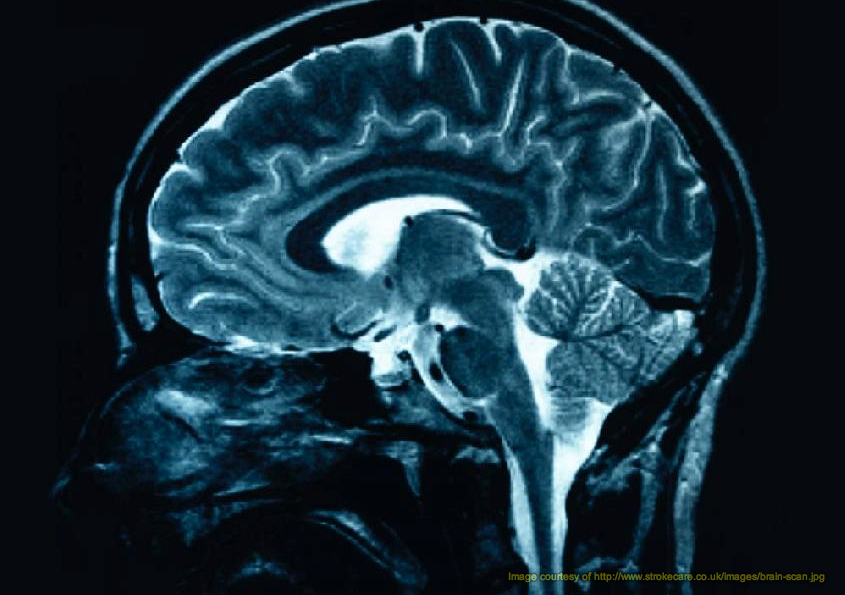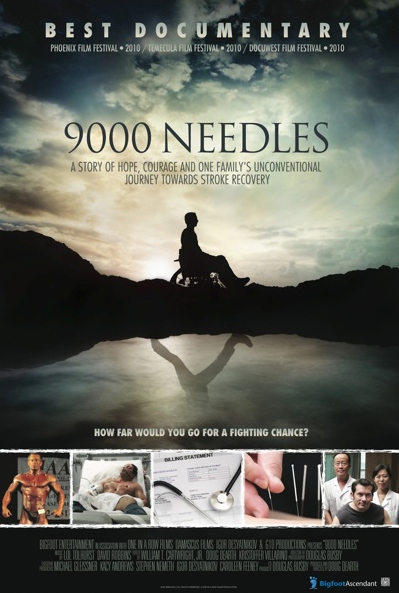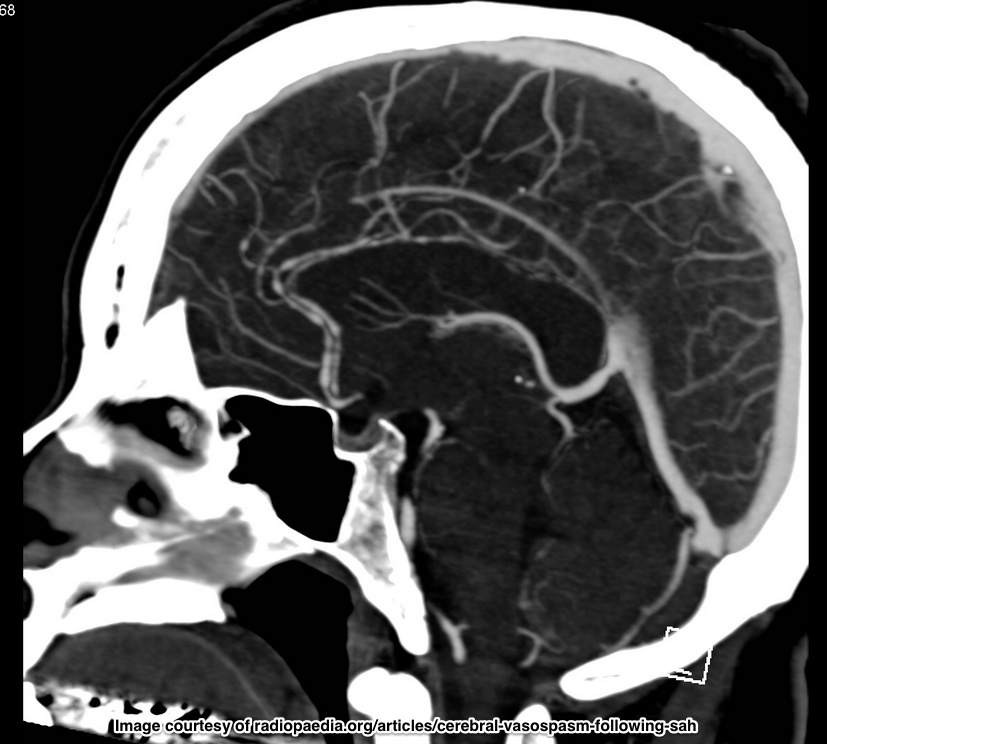At the Northside Holistic Center we see many post-stroke patients each week, presenting a wide variety of symptoms related to the damage caused by the cerbrovascular accident (CVA). The health issues we see include paralysis, aphasia (problems with speech), changes in the ability to smell and taste, general confusion, dizziness and other balance issues, and difficulty breathing. Luckily, with certain caveats, these problems tend to respond to treatment. The best results tend to be achieved if treatment is begun as soon as possible post-stroke. Improvement, sometimes dramatic, can be seen even with long term neurological damage but the chances are reduced.
Many studies have been done on Chinese medicine and acupuncture for the various stroke related problems and this page will be incrementally added to as I find time to aggregate them here.
An interesting and award winning documentary on acupuncture and stroke, 9000 Needles, is an informational and inspirational film which I recommend. 
Research and Articles
The results of several studies on stroke damage and acupuncture are summarized here. The studies find that acupuncture reverses brain damage after stroke:
A new MRI study finds acupuncture and electroacupuncture effective for treating brain tissue injuries and neurological disorders caused by cerebral ischemia/reperfusion injury (CIRI). This type of brain damage is caused by the return of blood circulation to the brain after a period of ischemia, restricted blood supply. The sudden return of blood to oxygen and circulation deprived brain tissues causes inflammation and oxidative stress. Acupuncture biochemically ameliorates this condition and reduces infarct (tissue necrosis due to circulation obstruction) size. Consequently, acupuncture and electroacupuncture benefit the brain after a stroke due to ischemia.
Cerebral ischemia/reperfusion causes brain edema and swelling. This is caused by sequelae including increased permeability of the blood brain barrier, tissue inflammation and upregulation of the biochemicals matrix metalloproteinase 2 (MMP2) and aquaporin (AQP). Researchers have discovered that acupuncture and electroacupuncture successfully regulate MMP2, AQP and inflammatory cell infiltration caused by CIRI. The researchers added that acupuncture and electroacupuncture “significantly reduced infarct size and improved neurologic function.” As a result, the researchers conclude that acupuncture and electroacupuncture exert “neuroprotective actions” and may “find utility as adjunctive and complementary treatments to supplement conventional therapy for ischemic stroke.”
Scientific Data
Several types of evaluations confirmed the decrease in infarct size and successful regulation of biochemicals by acupuncture and electroacupuncture after CIRI. The researchers used microscopic evaluation, fMRI, hematoxylin-eosin staining, quantitative real-time polymerase chain reaction evaluation, immunofluorescence analysis, immunohistochemical analysis and western blot analysis. Subjective evaluation of neurological deficits was also evaluated. The researchers conclude, “acupuncture and electroacupuncture are effective treatments for brain tissue injury and neurological deficits following CIRI in rats. Therefore, this study adds to the growing arsenal of research supporting the view that acupuncture and electroacupuncture, which are derived from Traditional Chinese Medicine, can serve as complementary and alternative treatments to supplement the conventional management of ischemic stroke.”
The study design was a laboratory rat experiment of middle cerebral artery occlusion causing cerebral ischemia/reperfusion. Acupuncture points GV20 and ST36 were applied. The results demonstrated several repeatable scientific phenomenon in fMRI imaging and biochemical analyses. GV20 and ST36 reduced infiltration of inflammatory cells, downregulated expression of proinflammatory enzyme MMP2, reduced expression of water channel proteins AQP4 and AQP9, reduced brain ischemia and decreased brain edema due to inflammation. Neurologic function was increased and verified by improved motor tests such as muscle status and movement capabilities; sensory tests including visual, tactile and proprioceptive evaluation; improvements in balance tests and improvements in reflex tests. Additionally, infarct size significantly reduced.
A Taiwanese study found good evidence that acupuncture is superior to biomedical approaches to balance issues, subsequent to a stroke. The research, which can be read about in detail here, found that:
The acupuncture group demonstrated clinically superior clinical outcomes for hemiplegic stroke patients.
A recent study was written about in Business Insider and describes research which demonstrates that acupuncture stimulates specific regions of the brain in patients who have suffered a stroke.
Most studies addressing the specificity of meridians and acupuncture points have focused mainly on the different neural effects of acupuncture at different points in healthy individuals.
Dr. Ji Qi and co-workers from School of Traditional Chinese Medicine, Southern Medical University in China examined the effects of acupuncture on brain function in a pathological context, and compared the effects between Waiguan and sham points in 16 patients with ischemic stroke.
Compared with sham acupuncture, acupuncture at Waiguan in stroke patients inhibited Brodmann area 5 on the healthy side.
These findings indicated that the altered specificity of sensation-associated cortex (Brodmann area 5) is possibly associated with a central mechanism of acupuncture at Waiguan for stroke patients.
The study has been published in the journal, Neural Regeneration Research.
A study from the Journal of Neuroinflammation found that acupuncture protects the brain from post-stroke deterioration, caused by transient cerebral ischemic injury. An excerpt from the study (which can be read about here) reads,
The researchers discovered that electro-acupuncture treatment activates a special alpha-7 nicotinic receptor located in the brain, alpha-7nAChR. Modern research confirms that alpha-7 nicotinic receptors are involved in the reduction of inflammatory neurotoxicity due to stroke, heart attack, sepsis and alzheimers disease. Acupuncture helps to protect the brain by activating alpha-7nAChR receptors. Once activated, they inhibit the release of HMGB1, a protein responsible for inflammation and necrosis.
Measuring the shutting down of HMGB1 release following a stroke is one of the first examples of mapping the exact biochemical mechanism by which acupuncture reduces brain cell death following a stroke. This helps to explain several beneficial effects measured in the study: electro-acupuncture reduces infarct volume, improves neurological outcomes, and inhibited neuronal apoptosis. The researchers conclude that electro-acupuncture provides “strong protection against transient cerebral ischemic injury….”
 Wednesday, April 16, 2014 at 2:05PM
Wednesday, April 16, 2014 at 2:05PM  A recent Chinese study demonstrated impressive results for patients suffering from cerbral vasospasm, a severe constriction of the arteries of the subarachnoid cavity of the brain. This type of problem can lead to decreased blood flow to the area and may cause ischemia, infarction, stroke and death. (a summary of the paper may be read here).
A recent Chinese study demonstrated impressive results for patients suffering from cerbral vasospasm, a severe constriction of the arteries of the subarachnoid cavity of the brain. This type of problem can lead to decreased blood flow to the area and may cause ischemia, infarction, stroke and death. (a summary of the paper may be read here).
